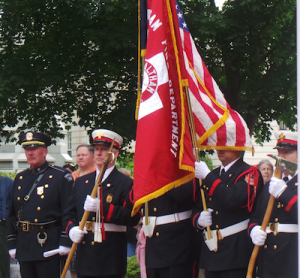Protecting our Veterans
Since taking office, Rep. Stanley has worked side-by-side with House members of the Joint Committee on Veterans and Federal Affairs to support and protect initiatives and services for our veterans. Rep. Stanley and his colleagues in the House are committed to ensuring that Massachusetts remains number one in the nation in providing services to our veterans.
Most recently, as a member of the Way & Means Committee Rep. Stanley supported a state budget which includes:
- $77.43 million in chapter 115 benefits for cities and towns a $6.46 million increase since FY14
- $250,000 for the train vets to treat vets program
- $350,000 to train veteran service officers (VSOs)
- $3.66 million for veteran outreach centers
- $2.9 million to help combat veterans homelessness
Previously, Rep. Stanley has filed legislation and voted in support of omnibus bills known as the Valor Act I and II, some of the most comprehensive and innovative legislative changes to support and expand services for military personnel, veterans and their families. These bills provide business opportunities, school services, employment education and health care support services to our state’s veterans and families.
The VALOR Act II included the following provisions:
- Allows students currently enrolled in college, who are called to active duty, to either complete their coursework without penalty following duty, or to withdraw and receive a tuition refund;
- Increases penalties for disturbing military funerals or services;
- Enacts provisions to guard against charity fraud;
- Requires the Division of Professional Licensure to waive the initial application or certification fee for licensure for any veteran;
- Establishes a post-deployment council to make recommendations and study mental health issues to support military members transitioning to civilian life after deployment;
- Requires the Department of Public Health to issue guidance to acute hospitals and ambulance service providers to ensure the identification of veterans in emergency settings.